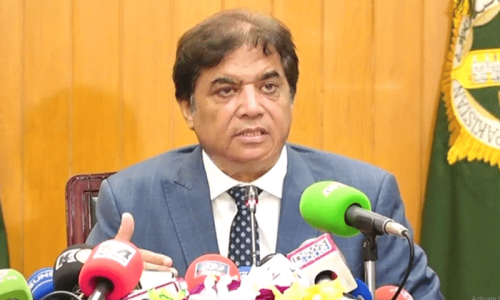GILGIT: The Gilgit-Baltistan wildlife department on Friday auctioned permits for the hunting of 113 rare species under the trophy hunting programme 2017-18, with the hunting of endangered Astor markhor fetching the highest licence fee of $100,000 in the history of trophy hunting.
Foreign and local hunters participated in the bidding for the licences which was held at the GB wildlife department’s head office, where GB Minister for Wildlife, Forest and Environment Imran Wakeel and wildlife officials were present.
In the bidding, licences for hunting four Astor markhors, 14 blue sheep and 95 ibex were awarded.
Hunting of endangered Astor markhor fetches highest licence fee in annual event’s history
The price
Hunting permits for four Astor markhors were auctioned for $68,000 to $100,000, 14 blue sheep for $8,000 to $10,000 and 95 ibex for $3,600.
The hunting season in the region begins in November and ends in April.
According to officials, the trophy hunting quota was created on the basis of annual surveys conducted by wildlife experts.
Last year, licence for hunting Astor markhor was auctioned for $55,700.
The officials said the previous trophy hunting programme earned $248,000.
Eighty per cent of the money received from the trophy hunting programme goes to local communities which spend it on education, health and other development projects.
The remaining 20 per cent money is deposited in the government exchequer.
GB is rich with flora and fauna because of its varied climatic conditions and ecosystem. The region is home to many rare species, such as Marco Polo sheep, ibex, markhor, urial, blue sheep, lynx, snow leopard, leopard cat, brown and black bears, wolf, fox, marmote, chakor and ram chakor and golden eagle.
However, some of these rare species are facing the threat of extinction due to illegal hunting, negligence of the wildlife department and the climate change related issues.
According to Mr Karim — who has been associated with the field of wildlife for 35 years and is a member of the community conservative wildlife committee in Passu village of upper Hunza — the population of protected animals is shrinking rapidly in the region.
He says that the major cause of the endangered animals’ shrinking population is illegal hunting for which he blames negligence of the wildlife department’s officials.
Foreign tourists and influential people from across the country visit the region for hunting every year, he says, adding that they get hunting permits from the wildlife department but always violate hunting rules.
Besides, he adds, there is a large-scale illegal hunting in the region.
He says that there was a report of the hunting of a female Marco Polo sheep last year which is not allowed according to rules.
Published in Dawn, September 23rd, 2017











































